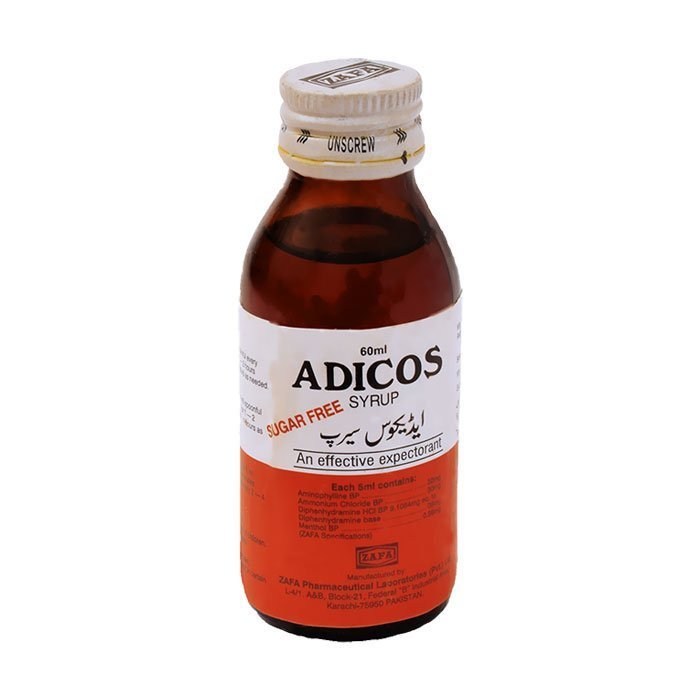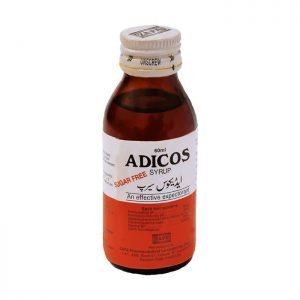
What can you do for cough relief?

Living in Pakistan comes with its parcel of pros and cons. While this country has so much to offer, pollution and changing weather can be some of its nasty aspects. Pakistan is known to experience all four seasons to the full. The transformation of one season to another and bombardments of all sorts of pollution invite common viral conditions. One such condition is commonly known as flu.
It is said that you cannot kill or control the virus, unlike bacteria. It is why when you visit a doctor with viral symptoms, he will resort to prescribing you medications that would relieve the symptoms. The viral condition eases off on its own after a particular period.
Flu is a nasty condition on its own. Running or stuffy nose—both of which are extremely uncomfortable, headaches, fever, grogginess, and cough. While you cannot control or cure much with the flu and its symptoms, cough is one thing that can be relieved. It comes as a breather as the cough is a menace for the sufferer and the people around him. It not only renders one uncomfortable but also facilitates the spread of the virus.
Over the years we Pakistanis have resorted to home remedies passed on to us by our elders for common cold and cough. Many of these remedies are highly effective. It may be surprising to know that these home remedies are the basis of many modern-day medicines.
Let us now talk about some common ways to relieve the cough.
Sucking on a mentholated or hard candy
This one is a winner. Remember those Strepsils and Vicks tablets for cough and sore throat? Man, they were so effective and tasty. So, these tablets have medicines in them that soothe the irritated lining of the throat and chest. These medicines also moisten the tract which helps in relieving the cough. The medicated candies are very helpful with cough relief but any hard candy can temporarily soothe the tract and cough.
Honey, nature’s magic!
Drinking tea or warm lemon water mixed with honey is an old way to soothe a sore throat. However, honey is a known cough suppressant too. In one study, children ages 1 to 5 with upper respiratory tract infections were given up to 2 teaspoons (10 milliliters) of honey at bedtime. The honey seemed to reduce nighttime coughing and improve sleep.
In fact, in the study, honey appeared to be as effective as a common cough suppressant ingredient, dextromethorphan, in typical over-the-counter doses. Since honey is low-cost and widely available, it might be worth a try.
Warm drinks
Warm drinks like warm milk, soups, or any other liquids are good to keep the cough away. The drinks moisten the tract and relief the cough. The warmth of the drinks relax the inflamed muscles and tissues and relieve the cough.
Cough syrup
Nothing works like the cough syrups. The cough syrups are designed with a combination of medicines that target the problematic areas. One such example of cough syrup is Adicose syrup. This is one of the most commonly available cough syrups in Pakistan. Adicos Syrup contains Dextromethorphan Hcl, Diphenhydramine Hcl, Menthol, and Pseudoephedrine Hcl as active ingredients.
Adicos Syrup works by suppressing the cough; suppressing the histamine-1 receptor sites on effector cells; stimulating the alpha-adrenergic receptors; temporarily relieving minor pain.
Uses
Adicos Syrup is used for the treatment, control, prevention, & improvement of the following diseases, conditions, and symptoms:
- Cough
- Nausea
- Vomiting
- Motion sickness
- Insect bite
- Hypersensitivity reactions
- Nasal congestion
- Hay fever
- Upper respiratory allergies
- Sinus congestion and pressure
- Pain in arthritis
- Pain in shoulder joint
- Pain in tendons
- Pain in muscle strains or sprains
- Back pain
- Bruising
- Cramping
Side-effects
The following is a list of possible side-effects that may occur from all constituting ingredients of Adicos Syrup. This is not a comprehensive list. These side-effects are possible but do not always occur. Some of the side-effects may be rare but serious. Consult your doctor if you observe any of the following side-effects, especially if they do not go away.
- Flushing
- Tachycardia
- Blurred vision
- Delirium
- Toxic psychosis
- Urinary retention
- Respiratory depression
- Urticaria
- Drug rash
- Photosensitivity
- Hemolytic anemia
- Hypotension
- Epigastric distress
- Anaphylactic shock
- The tightness of the chest
- Wheezing
- Anxiety
- Tremor
- Hallucinations
- Seizures
- Respiratory difficulty
- Dysuria
- Nausea
- Vomiting
- Ataxia
- Abdominal pain
- Drowsiness
- Contact dermatitis
- Condition of involuntary eye movement
- Sleep disorder
- Coma
- Irregularities in heart rhythm
- Vertigo
It is always wise to consult a doctor before taking any medicines. Self-medication is easy but poses serious health threats.

